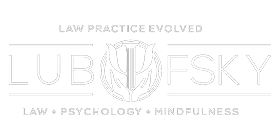The fundamental difference between holistic law and more traditional law practice can be characterized as “What is happening?” versus “What happened?”
In almost all types of civil litigation, including divorce, family law, personal injury, employment, etc., the launching point for traditional attorneys is to have the client articulate his or her cerebral recollection of a chain of past events that have led to a sense of being “wronged” or a perceived violation of the way things “should be” or “should have been.” This recollection, in the vast majority of cases, proves to consist of a story which, while bearing some relation to the truth, is usually intertwined with the ego of the individual to an extent that: (1) significantly distorts the truth; and (2) triggers habitual reactions to perceived wrongs usually unconsciously aimed at restoring the ego to its perch of prominence.
In contrast, the holistic lawyer embarks on a professional relationship by helping the client turn his or her focus and attention to what is happening as he or she sits in the attorney’s office or speaks to the attorney for the first time via some electronic medium. Upon connecting to present-moment experience, the client becomes far better able to witness ego-driven thoughts of his or her “problem” from a distance in a way that can serve to reduce the likelihood and intensity of habitual reactions to this predominantly conditioned thinking. The client is then far better able to approach his or her situation with a clarity most often lacking in a traditional approach to law practice.
The holistic lawyer serves to facilitate the client’s connection to present-moment experience through mindfulness exercises, or lines of questioning designed to focus attention to what is actually happening now – in reality – versus one’s cerebral recollection of what may have happened in the past. Only when the client is sufficiently grounded in present-moment experience are concrete legal solutions and a planned course of action defined. In this way, the holistic lawyer is better able to identify optimal legal solutions for clients that less driven by learned conditioning and habitual reactions.
To learn more about holistic lawyering, contact Holistic Lawyer Michael Lubofsky, Esq. at (415) 508-6263, or visit http://www.Holistic-Lawyer.com.
